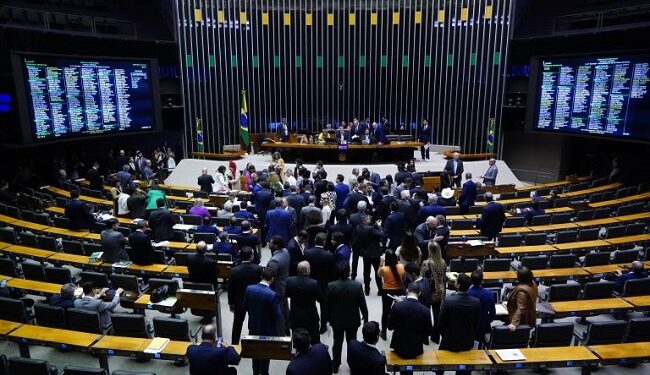President Lula is pushing for the approval of a tax reform constitutional amendment and has allocated a significant amount of budget amendments to deputies.
The project has raised concerns among institutions about its potential impact on tax collection.
On July 5, it was revealed that Lula set aside a record-breaking R$2.1 billion (US$420 million) for budget amendments.
The final vote on July 6 will determine if the government has secured the necessary 308 votes to pass the tax reform, which requires a three-fifths majority in the Chamber of Deputies.

A request to remove the tax reform bill from the agenda was narrowly defeated with 302 votes, creating uncertainty about its approval.
The government relies on the support of the Centrão voting bloc, a group of parties without clear ideological alignment, but many deputies in the Centrão are motivated by personal gain.
The PP and PL parties, led by Arthur Lira and Jair Bolsonaro respectively, received the most benefits from the budget amendments and contributed 38 votes to prevent removing the tax issue from the agenda.
The PT administration seeks further support from the PL and hopes for an alliance with the Republicans, represented by Tarcísio de Freitas, the conservative Governor of São Paulo state.
The Republicans have expressed their favor for the reform and provided 28 votes against removing the proposal from the agenda.
If all 302 government-aligned deputies remain consistent, along with the 13 votes from the Republicans, the government would have a total of 315 votes, enough to pass the proposal with a narrow margin.
In addition to the tax reform, the government aims to vote on the Carf bill and the fiscal framework.
The Carf bill’s inclusion has caused delays in other voting matters.
The fate of the fiscal framework depends on unlocking the agenda and requires discussions among party leaders to determine which changes made by the Senate should be retained.
The rapporteur for the fiscal framework, Representative Cláudio Cajado, intends to respect the decision of the college of leaders but opposes the Senate’s alterations.
With information from Poder360

